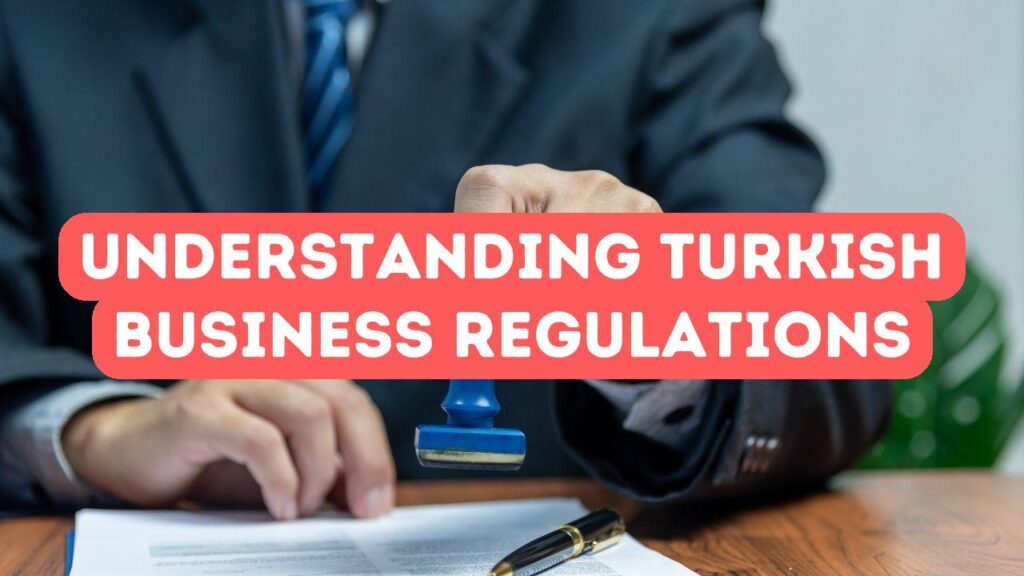Navigating the complexities of Turkish business regulations is essential for anyone looking to establish or expand their ventures in Turkey. As a nation positioned at the crossroads of Europe and Asia, Turkey presents unique opportunities, yet it also comes with its own set of regulatory frameworks that govern various business activities. At Gordion Partners, we understand the pivotal role these regulations play in the stability and growth of foreign enterprises. Our expertise in investment and immigration advisory services equips us to offer comprehensive guidance, ensuring compliance and fostering a seamless transition for businesses. In this blog post, we will delve into the core aspects of Turkish business regulations, providing you with crucial insights that can help pave the way for your successful business endeavors in this dynamic market.
Navigating Corporate Legislation in Turkey
Navigating Corporate Legislation in Turkey requires a thorough understanding of the legal framework governing company formation and operation. Establishing a business in Turkey typically involves choosing between various entity types such as Joint Stock Companies (A.S.), Limited Liability Companies (L.S.), and branch offices of foreign companies, each with its own set of registration requirements, capital obligations, and administrative procedures. Additionally, compliance with the Turkish Commercial Code, which outlines key provisions on corporate governance, shareholder rights, and financial reporting, is crucial for maintaining legitimacy and avoiding legal pitfalls. At Gordion Partners, we offer expert guidance on corporate legislation, helping you make informed decisions and ensuring your business adheres to all regulatory standards.
Understanding taxation is another critical component of navigating corporate legislation in Turkey. The Turkish tax system encompasses corporate income tax, value-added tax (VAT), and withholding tax, among others, each with specific rates, thresholds, and filing requirements. Companies must also stay abreast of tax incentives and exemptions that could benefit their operations, such as those offered in technology development zones or for strategic investments. In addition, regular updates to tax laws require ongoing vigilance to ensure compliance and optimize financial planning. Gordion Partners provides tailored tax advisory services, helping businesses efficiently manage their tax obligations and take advantage of available opportunities to enhance profitability.
Another essential factor in navigating corporate legislation is understanding the employment laws and regulations in Turkey. Companies operating within the country must comply with the Turkish Labor Law, which governs employee rights, working conditions, and contractual agreements. Key aspects include minimum wage standards, social security contributions, severance pay obligations, and work permit requirements for foreign employees. Employers must also adhere to occupational health and safety regulations to create a safe working environment and avoid penalties. At Gordion Partners, we assist businesses in comprehensively understanding and implementing these employment laws, ensuring that your operations run smoothly and remain compliant with all legal prerequisites, ultimately fostering a productive and harmonious workplace.
Key Compliance Requirements for Foreign Investors
Ensuring compliance with Turkish business regulations is a multifaceted process that requires a thorough understanding of local laws and procedures. For foreign investors, one of the primary steps is to establish a legal presence in Turkey, which can be achieved through various business structures such as joint stock companies, limited liability companies, or branch offices of a parent company. Additionally, obtaining the necessary licenses and permits, adhering to tax regulations, and fulfilling reporting obligations are critical. Navigating these requirements effectively not only mitigates legal risks but also enhances the credibility and operational efficiency of foreign enterprises in Turkey.
Another crucial aspect of compliance for foreign investors involves understanding and adhering to Turkish employment laws. Turkey’s labor regulations cover a wide array of issues including employment contracts, social security contributions, employee rights, and workplace safety standards. Companies must ensure that all employment practices comply with these regulations to avoid potential legal disputes and penalties. Furthermore, securing work permits for foreign employees is an integral part of the compliance process. At Gordion Partners, we aim to assist businesses in seamlessly navigating these labor requirements, ensuring that they not only stay compliant but also build a productive and legally sound workforce.
Lastly, foreign investors must be aware of Turkey’s regulations concerning intellectual property (IP) rights and environmental standards. Protecting your IP is vital for maintaining competitive advantage and fostering innovation, necessitating thorough registration and monitoring of patents, trademarks, and copyrights. Simultaneously, businesses must adhere to environmental regulations that focus on sustainable practices and waste management. Non-compliance can result in hefty fines and severe reputational damage. Gordion Partners provides indispensable assistance in navigating these intricate requirements, helping your business safeguard its intellectual assets and meet stringent environmental norms, thereby fostering long-term success and sustainability in the Turkish market.
Strategic Insights for Business Success in Turkey
Understanding the legal landscape is the cornerstone of strategic decision-making for businesses aiming to thrive in Turkey. Turkish business regulations encompass a wide range of essential areas, including company formation, taxation, labor laws, and sector-specific compliance requirements. Familiarity with these regulations not only ensures legality but also drives operational efficiency and reduces potential risks. At Gordion Partners, we emphasize the importance of a well-informed approach, integrating regulatory awareness into your overall business strategy to safeguard your investments and facilitate sustainable growth. Through our detailed advisory services, we enable you to navigate these complexities with confidence, ensuring your ventures are not only compliant but positioned for long-term success.
One of the key aspects to focus on is the process of company formation in Turkey, which involves several critical steps such as choosing the appropriate business structure, registering with the relevant authorities, and complying with local corporate governance standards. Whether you are looking to establish a limited liability company (LLC), a joint-stock company, or a branch office, each structure has its own set of legal requirements and implications. To simplify this intricate process, Gordion Partners provides tailored support, guiding you through each phase, from initial setup to ongoing compliance. By leveraging our local expertise, you can ensure that your business foundation in Turkey is both robust and aligned with regulatory demands, setting the stage for successful operational execution and growth.
Beyond company formation, understanding and adhering to Turkey’s taxation and labor laws is crucial for the sustainability of your business. Turkish tax regulations are comprehensive, covering corporate income tax, value-added tax (VAT), and other local taxes that may apply depending on the nature of your venture. Compliance with these tax obligations is essential to avoid legal setbacks and financial penalties. Equally important are Turkey’s labor laws, which dictate employment contracts, working conditions, and employee rights. These regulations ensure fair treatment of workers and foster a positive business environment. At Gordion Partners, we provide expert guidance to help you navigate these areas effectively, from optimizing your tax strategies to ensuring your labor practices meet legal standards. Our dedicated services not only secure compliance but also enhance your business’s operational resilience and reputation in the Turkish market.






